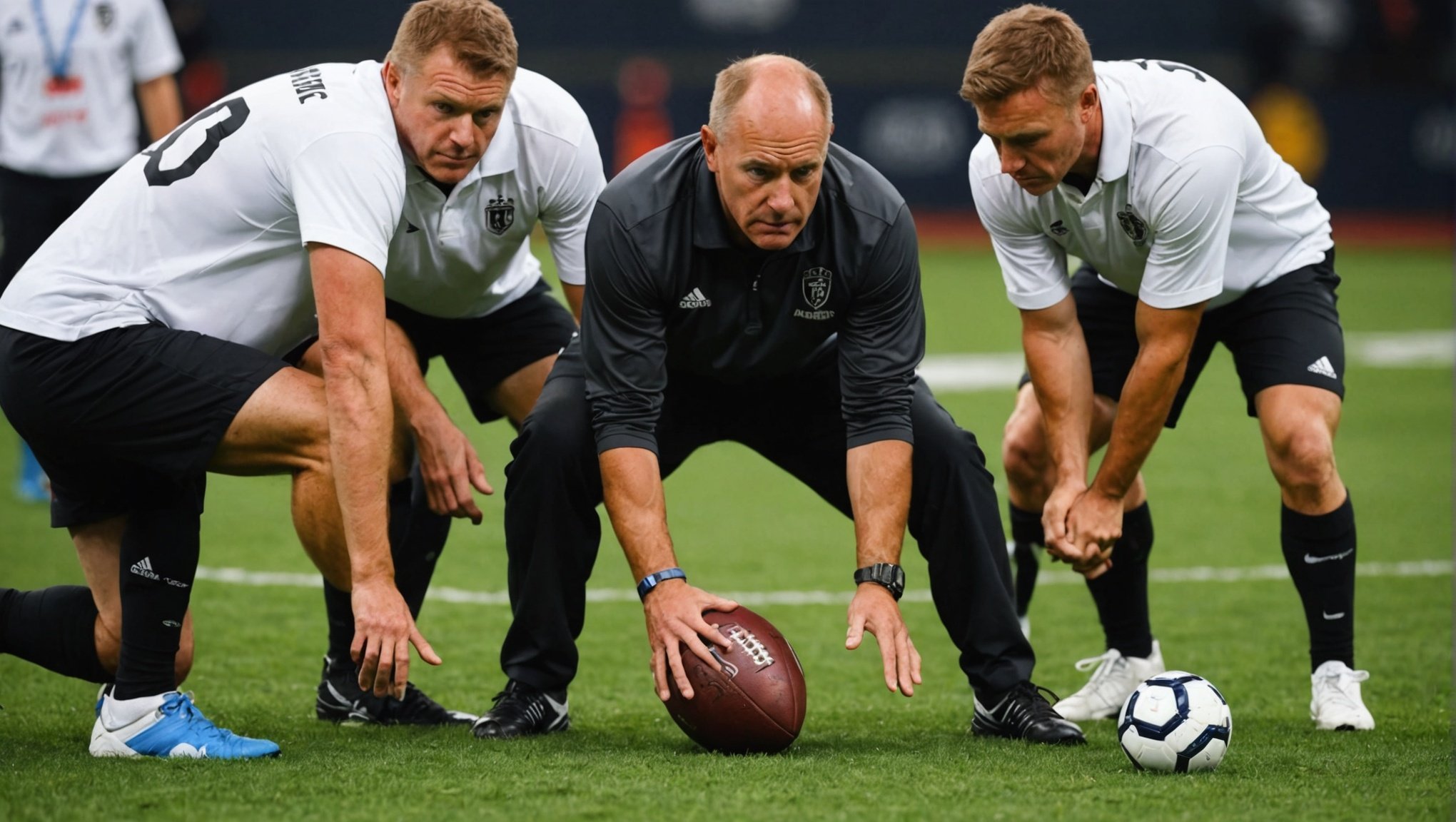Understanding Player Focus in Critical Moments
In high-stress situations, player focus plays a pivotal role in performance. When the stakes are high, athletes must harness their mental concentration to achieve success. It’s these pressure-packed moments where the ability to maintain focus can distinguish the good from the great.
Several factors challenge player concentration during critical times. High expectations, audience presence, and personal stakes can induce anxiety or distraction, which may deter effectiveness. In sporting events, the fast-paced environment often requires split-second decisions, stressing the importance of unwavering focus.
Also to read : Unlocking Potential: Strategies for Football Coaches to Recognize and Foster Leadership Skills in Young Athletes
Psychologically, maintaining mental concentration under game pressure involves both mental resilience and pre-established routines. Players often utilize techniques such as visualization, mindfulness, and breathing exercises to stay grounded and focused in the present. By reducing external distractions and internal anxieties, they can centre their attention on the immediate task.
To enhance focus, athletes might also rely on positive self-talk, maintaining self-assurance in their abilities and previous preparations. This positive reinforcement aids in buffering the negative impacts of stress and pressure, fostering a beneficial mindset. As every athlete knows, nurturing the right mental state is as crucial as physical training in achieving success on game day.
In the same genre : Promoting Mental Health: Strategies for Football Clubs to Support Player Well-Being
Techniques to Enhance Mental Resilience
Developing mental resilience is crucial for individuals aiming to handle stress and high-pressure scenarios effectively. Athletes, for instance, rely heavily on building mental toughness to excel in competitive environments. This often involves specific coping strategies tailored to fortify their emotional endurance. These strategies include setting realistic goals, maintaining a positive outlook, and nurturing self-discipline.
Stress management techniques are integral to enhancing mental resilience. Incorporating regular mental exercises, such as mindfulness meditation and deep breathing techniques, can significantly reduce stress levels. These activities allow individuals to centre their thoughts, mitigating anxiety and promoting a clearer mindset. Consistently practicing these exercises helps individuals to remain calm and composed when facing challenges.
Visualization is another powerful coping strategy employed to boost resilience. By visualizing successful outcomes and rehearsing responses to stressors, individuals can prepare mentally and emotionally for high-pressure situations. This technique enhances confidence and decreases performance anxiety.
Mindfulness plays a pivotal role by promoting awareness of one’s thoughts and emotions without judgment. When individuals practice mindfulness, they develop a heightened ability to respond rather than react to stressors, which strengthens their overall mental resilience. Altogether, these techniques form a multifaceted approach to building a more robust mental state.
Communication Strategies to Maintain Focus
In the realm of sports, effective communication is crucial for maintaining focus and ensuring seamless team dynamics. Clear communication channels enable coaches and players to connect and align their efforts during a game, which is vital for achieving success.
In the heat of the moment, coach-player interaction must be concise and direct. One technique is using simplified language and specific instructions to avoid misunderstandings. This ensures that all players are on the same page and can execute strategies without confusion. Additionally, visual signals can be effective, allowing players to receive guidance even in noisy environments.
Creating a supportive environment is also essential for fostering player concentration. Coaches should encourage open dialogue where players feel comfortable expressing concerns or ideas. By doing so, a sense of trust is established, enhancing the overall team dynamics. Positive reinforcement can further boost morale and focus, making players feel valued and engaged.
Remember, these strategies are not just about directives but also involve listening and adapting to the team’s needs. Cultivating an atmosphere of mutual respect and understanding will not only maintain focus but will also lead to more synchronized and successful performances.
Drills for Practicing Focus Under Pressure
In high-pressure sports environments, maintaining sharp focus is crucial. Drills focused on enhancing concentration can significantly improve a player’s performance under stress.
Focus Training Drills
Focus drills are crafted to hone an athlete’s ability to maintain concentration amidst distractions. Techniques typically involve maintaining eye contact with a moving object or executing a repetitive physical task while identifying numbers or letters in peripheral vision. These drills build mental resilience, ensuring athletes concentrate on tasks even when conditions aren’t ideal.
Game Scenario Simulations
Game simulations involve recreating potential in-game situations, allowing players to respond as if in a real match. Coaches may introduce unexpected elements, such as crowd noise or unexpected plays, requiring athletes to adapt mid-action. The primary goal is to replicate authentic game scenarios that demand quick, focused decision-making.
Individual and Team Challenges
Through individual and team challenges, drills become a collective exercise promoting mutual focus and communication. These activities generate competitive conditions, often timed or scored, to drive players to perform under time constraints.
- Simulate pressure-filled scenarios
- Integrate real-time feedback for immediate improvement
- Evaluate players in critical situations for comprehensive assessment
By equipping individuals with these techniques, both mental toughness and concentration can be enhanced, ultimately leading to more consistent performance during competitions.
Strategies for Situational Awareness
In the world of competitive gaming, situational awareness is paramount. Players who master this skill often have the edge, making crucial decisions that can pivot the outcome of a match. Understanding game dynamics and strategy is akin to a chess game where anticipating the opponent’s moves can lead to victory. But how can players better their situational awareness?
Effective training involves exercises that enhance a player’s ability to recognize patterns and cues. By identifying these signals, players can make swift and informed decisions, mitigating risks during high-pressure moments. For instance, during practice, it’s beneficial to simulate scenarios where players must quickly adapt their strategy based on emerging game dynamics.
Coaches can foster this adaptability by encouraging players to reflect on past performance, analysing instances where decisions were made under stress. Reviewing gameplay footage is another method to bolster a player’s ability to anticipate and react in real-time.
Recognising these patterns and cues isn’t just about practice but also about intuition developed over repeated exposure. This approach can guide players not only to improve their awareness but to enhance their overall game strategy, ultimately translating practice into performance.
Case Studies of Successful Focus Enhancement
When examining case studies around player focus enhancement, a number of success stories from both amateur and professional sectors stand out. These best practices elucidate the critical strategies which have transformed teams and athletes alike.
One success story comes from a team that implemented mental conditioning sessions. By allocating time to visualisation and mindfulness exercises, the players reported higher levels of concentration during matches. The coaches provided personalised feedback, realising that tailored advice further sharpened the athletes’ potential.
Another significant case study involved a professional team that embraced technology. By using apps to monitor stress and performance metrics, they identified focus-related issues quickly and addressed them effectively. This highlights the importance of data in diagnosing and rectifying focus problems at all levels of play.
Key takeaways from these success stories emphasise the role of a tailored approach. Embracing both traditional methods, such as mentorship, and modern solutions like technology, has been vital. Comprehensive guidance from professional coaches, coupled with consistent monitoring, ensures improvement in focus across varied sports environments. These best practices show that even minor adjustments can lead to major performance gains.











